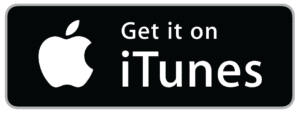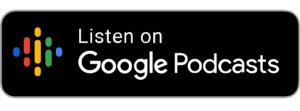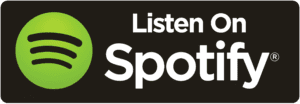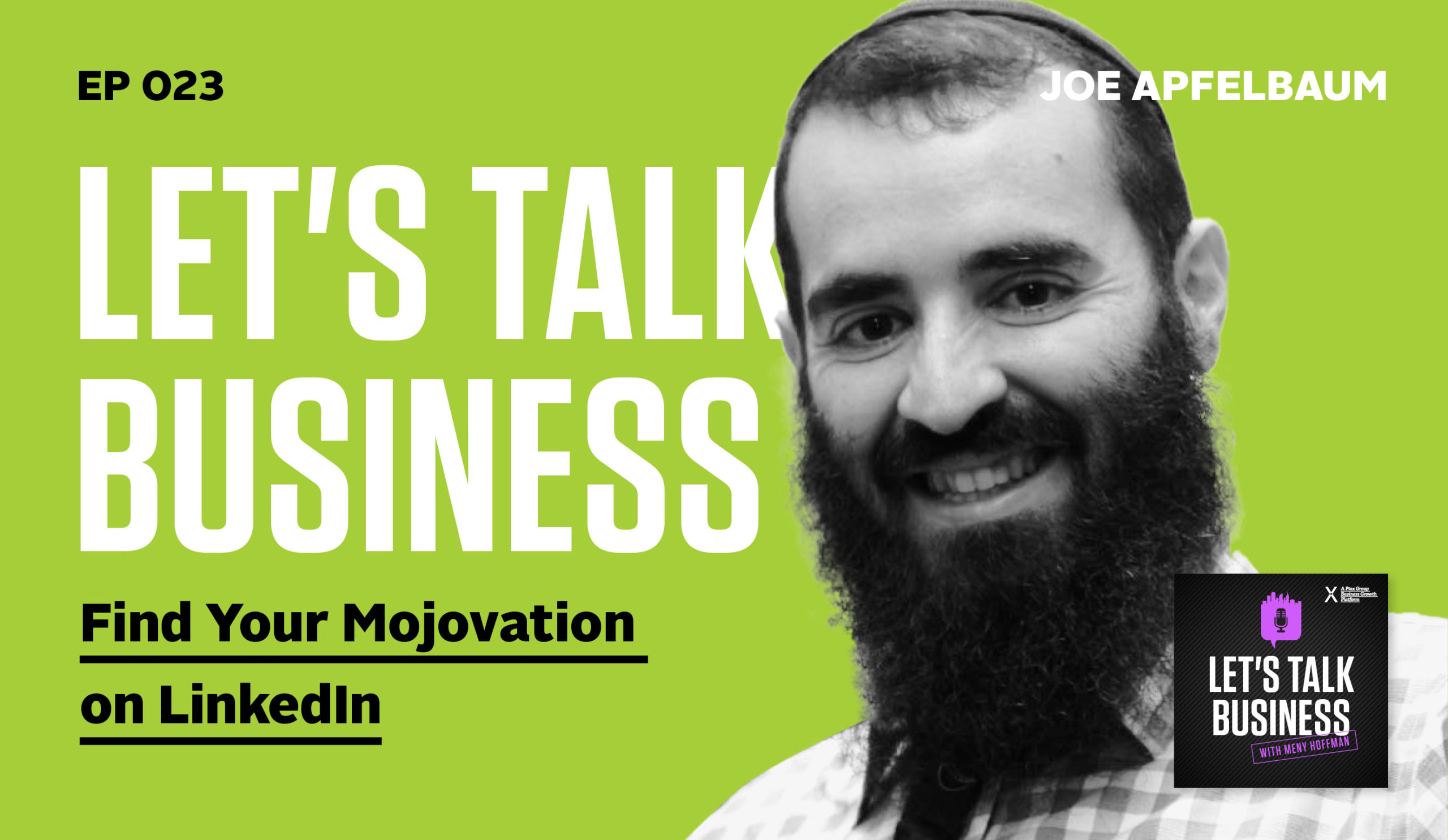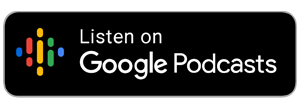Joel Wolh, the Amazon Madman, joins Meny Hoffman to talk about how he has leveraged his unique skills to become an Amazon success and more.
What is your most marketable skill? Can you leverage it to attract more revenue—or even build a brand new business around it?
I am thrilled to share my interview with Joel Wolh, owner of a successful Amazon advertising agency and host of the popular startup-themed podcast, “The Joel Show.”
In our interview, Joel shares how he took a skillset that he developed while working for another company and built his own business around it. He explains the importance of building a social presence that establishes yourself as the expert in your niche, and the realities of building a brand on Amazon. Finally, Joel shares how, when he was suspended from LinkedIn and lost all his connections, he pivoted to develop the up-and-coming business networking platform, Bizfluence, and what we can learn from his experience.
Listen and enjoy!
Listen to the podcast here:
Download the audio file here.
Leverage Your Uniqueness for Business, Your Brand, and Beyond—with Joel Wolh
—
Joel, thank you so much for joining me on the show.
Thank you for having me.
You and I have known each other now for quite some years. We dug into a message that you sent me a couple of years ago when you were transitioning between different opportunities. For our readers that don’t know Joel and not following you in any of the social media networks, tell us a little bit about your journey, a little bit about where you started, how you got to where you are, and anything and everything in between.
Meny, the first time we met, you shushed me. It was at your event. I go to events and I never ever sit through the speech. I go there to network. I don’t care what people talk about on stage. It’s useless. I’m talking and you shushed me. I’m like, “I started speaking before the speaker did.” No, I was polite. I’ve heard of you throughout the Jewish business world as a business leader. That’s one of the reasons why I came to that big, beautiful event. What struck me was how humble you were. You’re going around and making sure everyone’s paid attention and the schedule is working fine. At that point, I was like “I want to get to know this guy.” That’s when we met. In terms of what I’ve been doing, I never had clear direction. I lived in Canada for a long time ever since I was married. Going back to 2001 or 2002, Canada, Montreal especially is old-fashioned in business. There was not a lot going on, the whole entrepreneurial mindset, Shark Tank, that whole phenomenon.
At that time, it was Dragon’s Den, which was the Shark Tank, but that whole celebrity or around big-time millionaires and billionaires and that whole entrepreneurial culture did not exist so much. Unless you had this fire in you, where you’re out there and make money, maybe it was a family thing, a community thing where people motivated you. I did not have that. I wasn’t even woke to it. I did not know about it. I was doing my thing. I wanted to be successful and I was somewhat successful, but I had plenty of hard seasons. I was in products at some point, I ended up moving back to the states, East Coast. I was still in the product business. A new business, which obviously led to Amazon because all consumer products were shifting to Amazon distributions. At some point, I got into the advertising angle on Amazon. I got turned on to it. I will never forget hearing about it for the first time and how it works.
I was blown away. It’s not much different than Google PPC, but that whole concept of, “I can take the word, that a person searched for this microphone and he used the word black microphone. I can take that word and put it into an ad so that when the next person searches for black microphone, my ad will come up and I set how much I want to pay for the exact word, black microphone, $0.55, black microphone, cordless, $0.43.” It blew me away. I was aware of the concept, but now it’s in my face. I took a business and we added $100,000 in sales a month by me turning on the ads business there. It wasn’t my own business, but I turned it into my own business because I learned a skill that I was passionate about that I love. I started going to Amazon events and letting people know, “I’m good at this ad thing. If you’re not using it, you should be using it.”
[bctt tweet=”Online shopping is here to stay.” username=””]
At that time, years ago, maybe 30%, 40% of sellers only were utilizing advertising, today over 90% do it. I started building an agency business, a service business and I’ve loved it. At that time, I started using LinkedIn in a way where it had become a little bit more personal. It had become a little bit more social, not the way it is today. When I met you in your office and we posed for a picture together. I put my feet up on your desk and I tagged my socks. It was stupid, but it was business. It was in a business context. That’s where it started getting events. We did some big events and I started getting more well-known. There was this whole awakening on LinkedIn where now there’s a lot of hype around business and around success.
You don’t have to cold pitch someone. You can post, “I met with Meny Hoffman who’s a marketing genius.” “Let me reach out to Meny Hoffman,” which I pointed out to your esteem guests. Ms. Wendy, she says, “You have to cold pitch.” I said, “This post that you’re commenting on got 21,000 views.” It’s small percentage of those people. Maybe 10, 15 people inbox me out of those 10, 15 people, maybe one will convert to a sale, which we’re not even discussing today, but maybe in a week or two, in a month. Some of those 20,000 people as well will reach out to me at some point because they’ll see other posts. In that sense, I discovered something amazing. I can talk about myself. I have a pretty shy personality, but I discovered this too: online, I’m not shy. It’s me and my phone.
I want to go back to where you started. This is something that we see so often. It should be even embraced, where somebody works for a company, develops a skill and that skill leads into something where they develop that passion for it. They go out and do it. Some people, when they start a career, they started their journey. They’re afraid of, “Could I go out and do that?” We need to do it in a fair way, in a way that we’re not going neck and neck and competing where we worked that. The goal is taking that skill that you did for one company, now I can do that skill, multiply that with so many others. I want to get to the point where you got after you started doing that. Out of the gate, you created that Amazon Madman, part of your LinkedIn strategy in order to gain attention to the service and what you’re doing. How deliberate was that? Let’s share a little bit about what goes into personal branding and there’s the business branding.
What we skipped over is fundamental. There’s a lot of people on here that have jobs that are maybe managers in their companies that are mid to high level within a certain company, or maybe they’re working on their own. It still applies to them because it’s extremely important to double down. In a business, you want to learn as much about the operations as possible. I spoke to a group of college students last night. I didn’t plan this. This came out. I’m not one of those guys that has it all scripted out. I have no idea what I was going to do. I was nervous speaking to young people because they’ll ask anything. Older people have come to terms with their own shortcomings. Therefore, they sense a shortcoming, their not going to ask about it.
Many of you are shy. A major takeaway was that these days, besides learning how to code and develop, there are a million apps out there. You run a business. Every process, every system in your business now, there are systems or there are apps. If you can learn those things really well, there is a service that you can call up. Any company out there, your local plumber, your hardware, your lighting store, anyone. Going down the street with my signs there and say, “For $500 a month, I’m going to train you how to use these four tools that will save you thousands of dollars and hours of work.” When you work at a company, you can become not only an expert at one thing like learning logistics, UPS, FedEx, or learning bookkeeping or something like that, but also the tools that are involved in that. If you’re using Smartsheet or using Pipedrive, or some other CRM, learn that vertical and you become an expert in CRMs.
That’s something that the last decade has opened up tremendous opportunity.
More and more so every single day.
At least 30% of the services we provide now to our clients were services we wanted to use for ourselves and try to figure it out. Once we figure it out, we say, “This is something every other business owner needs. As we develop projects and marketing, we want to be able to track it. We want to be able to get those leads coming into our system.” For our readers, it’s not only the skill that you were hired to do. It goes even beyond that people always ask, “There’s so much value I can bring to the company with my skill. What’s my growth potential?” Sometimes you open up the eyes of your leaders, your managers, your business owners, because you’re adding value by saying, “Why are we doing it this way? Let’s automate it. We’re saving a ton of money and we can be efficient.”
A big percentage of leaders will not appreciate it. They will not understand it. They will not get it. You know what you do? You go out on your own and it costs you zero. You already have a laptop. That is all you need. You get your first few clients. You have some revenue and you build. That’s a great takeaway. Let’s go back to your question.

I want to get to the Amazon Madman because the first time I saw it, it right away struck me. Here’s somebody that wants to capture a space and wants to be able to be known in an industry. You phrased it and marketed in a way where it stuck while you were marketing, while you were discussing other topics. You kept the perfect balance between running a business and marketing your business. Here’s my opinions, here I am as a person and as a personal brand. I know that you do this for others as well. How do you balance the two? This is a question that a lot of people always ask, “Which tone do I use? Do I use my business? Do I use my personal tone? Do I marry the two?”
Businesses are boring. You run a company called Ptex. Ptex is boring. It’s four initials or a word. I don’t know what it is. It’s not relevant to most people. Coca-Cola is boring too. It’s just a word. It is about how open are you to bringing people into your process and not only into your process, into your personal brand that has to be tied. You have to be comfortable tying that into your business. For me, as I started out as a solopreneur, I was running my own thing. I had one account manager then two then three. I was running a small business. I was comfortable with saying anything. I don’t care.
The majority of my clients in the first two years were mostly local, Brooklyn, New Jersey based Amazon sellers, same religion like me, mostly the same gender. I was comfortable saying whatever it is that I want to, not that it was anything controversial. I’m not beholden to anyone, let’s take Ptex for example, you may have clients across the spectrum, religious business, non-profits. The things that represent you might not always best represent them. Some people that are more risk averse will say, “I don’t care. I might lose one, but maybe I’ll gain ten new clients.” And you will. At the same time, it’s got to mash with your company brand. Once it does, you can say or do anything in a way that will convert people to your brand.
We’re still in the midst of the global pandemic. It hit people hard on the health issues, in business. You’re working with so many eCommerce sellers. Ptex works with a lot of eCommerce sellers on the branding side. We’ve seen an uptick. The reason for that is simply because people were locked in, they couldn’t go out to stores. Stores are still closed and keep on being shut. What trends have you seen, not only trends in the marketplace, but also what have you seen people do in order to be able to sustain and even grow their businesses?
I’ve seen a lot of people lose and a lot of people win. I can’t claim that I did such a good job through the pandemic. I always like to roll with the punches. I just did a video about it. My point is that you have to be turned on at all times. When you’re turned on, no matter what else turns off, you’re on. Your business shuts down, you’re still on, you’re still looking for opportunity, you’re still exploring every single angle. For instance, your marketing company, not yours, but someone’s. I’ve spoken with someone who lost every single one of his clients during Corona, every single one of his marketing clients, small business, you had five to seven clients, hold on, get creative, break down out of your catalogue of features, get that one thing that anybody can use that’s cheap, that you can roll out, that you can scale and stop blasting it out there. He did good. There are always opportunities. No matter what happens, when you’re running a company and you have clients, you have to figure out how to transition and sometimes you must get creative. I’m not that creative to be frank. I don’t know what I would do if all our clients went away and we have employees to hold on to. A lot of people couldn’t keep their employees. I don’t have a great answer, Meny.
Have you seen certain brands pivot or expand product line?
There’s the obvious where a lot of brands went into PPE-related products. On Amazon there were a lot of challenges with those types of products, but I’ve seen brands that got lucky. I saw a brand that started doing some sanitary wipes randomly as part of their baby product collection. They were doing $18,000 in sales a month. I don’t know how they had inventory. I have no idea that too is a miracle because they probably stocked up. God knows how much inventory. It would have all gone to sleep during regular times and they started killing it. People did the plexiglass dividers and all these other stuffs.
[bctt tweet=”Everything is a post, everything that happens.” username=””]
Do you feel the spike in eCommerce is something which is going to sustain? Are you seeing this coming back to where it was?
I’m not a great predictor. Once you start getting into the habit of ordering from Amazon, you’re not going to run out to Target when you need that toothpaste. A lot of people are saying, “Retailers have to get creative.” People have been talking about it that they have to start getting creative. It’s got to start becoming an experience. Online shopping is here to stay. We’re deep into that. Many people are shocked that at the scale of it. You thought, “It’s pretty much Amazon, Target, Walmart delivers to your house and everyone knows that, but 200%, 300% spikes.” There is a way to go. It’s incredible to see that happening.
Is Amazon still a great opportunity for someone that’s serious about building a business?
I had three in-depth conversations about it. One was with my dad. Amazon is not Amazon. Amazon is a consumer product business. Do you want to get into consumer product business? There always will be opportunity for that. You do a lot of work with branding for some of these products. You wanted to have the mindset of a real brand, whatever that means in whatever capacity. A brand that is identifiable, that has DNA, that has the right packaging, that has the right design and that launches products long within that brand. If you become a home safety, child safety brand, you want to identify as such, you want to have the right logo and you want to be able to roll out product after product. Amazon is easy to get onto. You can get onto Walmart and get onto all these different platforms create your own Shopify site. It’s not about becoming an Amazon seller. Last night on the webinar, one of the kids asked me, “Is that true?” What you see online with people on YouTube, “I made $820,000 last month.” I’m like, “No, it’s not true.”
Some people become lucky easy. That’s not sustainable.
The business is not some hack where you’re pushing a bunch of buttons. It is designing products, packaging, schlepping 30 boxes in your warehouse, in a garage. There’s a lot of tools that you can use, but it is building a product business. It’s no different than what your uncle did in the 1980s.
The best feeling I have is when I have those brand strategy conversations with people. I asked them the first question, “What do you do?” Says, “I sell on Amazon.” On the way out I say, “From now on, don’t say that, say I’m building a product brand, my distribution channel is Amazon.”
Your main distribution channel will be Amazon.
I want to speak about something that shocked me. You had some issues with LinkedIn. We’re not going to get into all the details about you are a voice on LinkedIn, had thousands of connections, a lot of conversations. You not only had conversations, you were the first to make a large event to bring together those LinkedIn people, two of them. More importantly is you actively recruited people to say, “Forget about everything you’ve done, come into a platform where you can have a voice and recruit clients.” Now you decided that it’s time to build a new business platform called Bizfluence. Tell us a little bit about the journey without going into all the drama, but a bit about the power of business networking and what you feel the future for Bizfluence is and what our people should be looking forward on that platform?

As much as I’d like to pitch my platform, the story here and the takeaway here is more about the journey and what’s possible. Let’s talk about a lesson of breaking stuff down to the lowest common denominator. I was censored on LinkedIn, everyone was like, “What must you have done?” This was end of June 2020. Every other post is about someone, either being deleted off it or their post being censored or their comments being censored. People are focusing on Twitter and Facebook. They don’t realize what’s going on in LinkedIn. It’s crazy. I got suspended. I started hearing noise and started talking to make your own platform. You don’t make your own platform, LinkedIn has 700 million users and there’s billions and billions of dollars in revenue.
Microsoft seventeen years in the making. We started moving forward and I said, “I got this idea of a beta platform that we can build, talking to different people.” One of the things we discovered was that we can actually get a small beta platform going, we can get it going within a few weeks and it won’t cost us anything. I said, “If I can do that, then I can bring some people on. If I can do that, then I can maybe raise some money.” We’re doing that and I don’t want to brag about what we’re up to or talk about it because we’re in the beginning of the journey. We have 2000 users, we’re up to about close to 3000 users. We have close to 6,000 posts already posted. We raised money. We’re going to go into the next raise in January. We’re building an app, we’re building software, we’re building a lot of different things and we’re doing it step by step. What’s interesting here is that I spoke to some people, big industry leaders, both in the startup world and in general business world. They were all hesitant like, “What? You can’t do that. It’s going to take a lot of money.”
I did something unique and fresh. I said, “Can I get this beta thing up? Can I then do the next step and benchmarks and hedge myself against taking too much investment against taking too much on too much risk.” It’s step by step. A guy says, “Taking that on. It’s like taking on a mountain.” I said, “No, I’m not lifting a mountain. I’m lifting a pebble.” That’s what we’re doing. I’m excited about it. You can get on a post. What we’re trying to do is more heavy networking, more focused networking, and as well as different features and applications that you can use to actually close business. If Meny Hoffman wanted to sell a branding package right there on his profile, you can click on it and buy it. That’s one of the things that we want to do. We’re thinking more in terms of transactions.
First of all, for our readers, this is an important lesson that we all face on different occasions and maybe in different magnitudes. To go back when you were suspended for LinkedIn, I was thinking to myself that here you have a person that has built everything around that. There are no other mediums where I’m marketing. There are no other mediums where I’m sharing my opinions. It’s one. Once upon a time, you could see I have my Facebook following, I have my Twitter following, my Instagram, but then you can’t stretch yourself that thin. You figure out where I connect the most to my people, my audience. This is the danger of this day and age, where you rely on those platforms and that’s where you’re faced.
Instead of coming down, crumbling, how could I come out a winner out of the situation and how could I turn that into something bigger? The lesson of the year is not everybody is in the market to build a platform. Not everybody could learn from this to say, “Let me open my own business,” or whatever it is, but how could you pick yourself up and figure out instead of whining on what happened, learn from that and see how you could pick yourself up and do the next thing?
That goes back to what I’ve said about constantly being in the hot seat, constantly saying, “This collapsed.” I’m not someone that’s here to give lessons to people I’m this successful person, no. I’m going through challenges and I’m looking at it. I am locked out. I have no alternative right now. I am going to commit to spending money in print media. I’m going to continue to work in some way and doing whatever I need to do to get out there. It is the way to get back on your feet.
[bctt tweet=”No matter how many people have similar sets of skills, there’s only one you. ” username=””]
I want to get in one more question, which is what would be a piece of advice you would be able to leave the readers with, if they want to be online and focus on getting business out of it, regardless of which platform it is? What is a winning strategy for a person to do?
I have a bit of an extra dose of whatever it is that it takes to win online, whether it’s charisma or wit, or some skill when it comes to content creation. I don’t disagree with that. I’m not bragging about it. I’m saying I obviously do, because otherwise, I wouldn’t be standing out. What I would say to people is stop looking at people like me. Stop looking at content creators, although look at yourself and say, “Maybe I can. Am I good at video? Maybe I’m incredibly good looking.” Maybe your great at pictures, but you’re terrible once you start speaking. Maybe you write well. First of all, look at that, but if you don’t have any special skills, the most important thing you can do online is pick one medium. I know Gary Vee will tell you, “Post on 1,800 mediums a day a piece of content.” It’s impossible unless you’re a freak. You’re sleeping three hours a night.
And you have a team like Gary.
I know, in all fairness, he did do that before he had a big team.
When it was Twitter.
Only Twitter. The point is that, find that one place and right now it’s LinkedIn, Bizfluence is moving in there. Post about what you do. Don’t push it out there. Post projects become known as The Person. The Amazon Madman. You don’t have to do anything stupid. You don’t have to do anything personal if you don’t need to. Post about your journey. Post about your clients. Do it consistently every single day. No one else is going to do it every day like you will. If you can do it twice or three times a day, that’s even better because for sure you’re going to be dominating in your vertical and people will get to know you and people will reach out to you. There’s no question about it.
I’ll add on that is you got to be yourself. I always say that don’t try to be someone else because what you’re seeing online, you should build a relationship offline with that person. You should be able to do business with that person. At one point, they don’t want to see a different person showing up than what they saw online. I had a conversation with someone, and this person wanted to start a LinkedIn account and wanted to start posting. He said, “I don’t have what to post, I’ve never written anything.” I said, “What do you do for a living?” He says, “I’m a salesperson for a shelving company for retailers.” I say, “I want you to do me a favor one day in the showroom, document every question you answered for a potential buyer in the store.” It was fascinating. He had three pages of notes. To bore you with one of them was, “This person came in that he’s looking to build a store and he’s looking to maximize the shelf space on something.” I said, “Everything you do one-on-one that could become a post.”
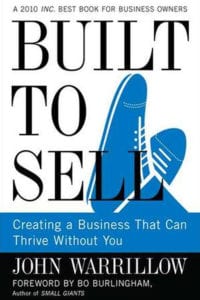
Behind the scenes, what goes into the design? What software do you use for planning? What is the before, when they come to you with the space? What does it look afterwards when it stocked? Go into that store and take a picture of it stocked. Without us, everything would be on the floor. You can do all that and you can talk about the culture at work. You can talk about what your boss did or what you did or what you did for your employees or colleagues and whatnot. Everything is a post, everything that happens. Everything, that you go home, and you repeat to your spouse about what happened at work today is a post.
This was great. For the links to resources mentioned this episode, check out the show notes at www.PtexGroup.com/podcast, where we’ll actually put the links to the new platform and every other place where you could find. Joel let’s close with four rapid fire questions. Number one, a book that changed your life.
It’s a book that tells a story about a guy that has a marketing agency, and his mentor/millionaire friend teaches him how to scale. I forget.
The book is Built to Sell. It’s a great book. I advise everybody reading to this, regardless if your business is eventually you want to sell it or not. It’s about the process of setting it up. Number two, a piece of advice you got that you’ll never forget.
There’s only one Joel. It’s the focus on you, so focused that there’s only one, Meny Hoffman and no matter how many people have similar set of skills, there’s only one you.
Number three, anything you wish you could go back and do differently?
Everything
Number four, final question. What’s on your bucket list to achieve?
There’s a lot of things on my list, but at this point in my life, I’d like to build something that pays dividends, not only in this world, but in the next, which means I want to get creative about helping people.
Joel, thank you so much for joining us. I know your time is valuable. That is why in the name of our readers, we will forever be grateful for sharing some of your time with us.
Meny, thank you. It’s always a pleasure.
—
I hope you enjoy the practical no-nonsense advice that our guest shared. If you found value on reading, I would be so grateful if you could share the episode with your friends. If you could give the show a five-star rating on Apple Podcasts or other platforms you listen, subscribe to the show and get notified every time we publish a new episode.
Links Mentioned:
- The Joel Show – Apple Podcasts
- Bizfluence
- Ptex



